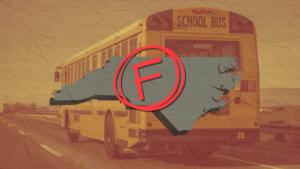Back to school season in North Carolina is bringing forth many new challenges for educators, students, and parents. On top of shortages, school districts are having to adjust to a slew of right-wing education measures, including Senate Bill 49, also known as North Carolina’s version of the “Don’t Say Gay” bill.
Earlier this month, state Republicans voted to override Gov. Roy Cooper’s veto of the controversial legislation, which would ban curriculums from including gender identity and sexual orientation in certain grades and mandates teachers to out students who decide to use a different name or pronoun.
“Some of our students who come to school, particularly those who do not have access to a safe and caring adult (at home), will lose access to a trusted adult in school buildings, particularly if they identify as LGBTQ+,” stated Tamika Walker Kelly, the president of the North Carolina Association of Educators, surrounding the bill.
For educators, the bill would place a burden on teachers who are already overworked and underpaid; requiring disciplinary action if teachers refuse to out students.
“I can’t begin to explain how sad it makes me that something like this, the legislation, the attitudes, the shift in our culture, have really taken from me something that I love and is central to who I am,” Jack Turnwald, an openly transgender teacher who left Wake County Schools, told ABC11.
“What it’s essentially going to do is create a lot of fear for people, you’re gonna have educators who are unclear on what they can and can’t do, and so they’re going to fall back on restricting themselves the most to avoid having a problem,” Turnwald added.
The ever-increasing extremist influence on education policies is forcing many educators, like Turnwald, to leave the profession.
In a national survey from education-equity advocacy nonprofit Stand for Children, 3 in 10 teachers are considering leaving the profession at the end of this school year, and more than a third of the 2,000 K–12 educators surveyed cited new state laws restricting classroom discussions on race, gender, and sexuality as a reason.
“Curriculum should be set by educators, not censored by politicians with partisan agendas,” Kendra R. Johnson, Executive Director of Equality NC, told N.C. Newsline.
“Anti-trans and anti-LGBTQ+ bills harm the mental health of queer and trans youth. And with the prevalence of suicidal ideation trending upward among LGBTQ+ young people over the last three years, bills like SB49 have life or death consequences.”
According to ABC 11, the Charlotte-Mecklenburg school system is the only major district to implement the new law. Other major school districts such as Wake County and Durham County Schools are still reviewing the controversial law.





